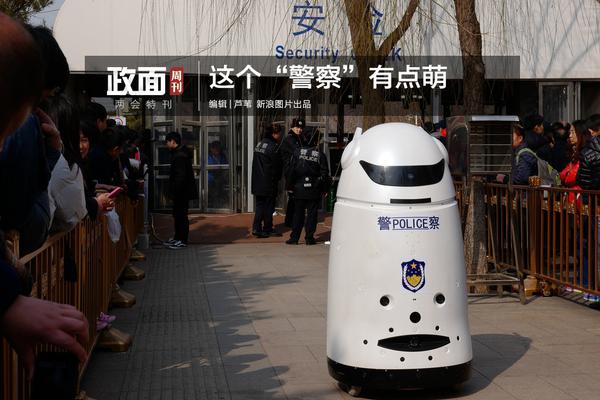
1. System stability refers to 1 System stability refers to a certain stable state shown by system elements under external influence. Its meanings are roughly divided into the following three categories: (1), external temperature, mechanical and other various changes, which do not have a significant impact on the state of the system.
2. The so-called system stability refers to the performance of the system recovering from the initial deviation state to the original equilibrium state after the disturbance disappears. In classical control theory, the sufficient necessary condition for system stability is that when time tends to infinity, the unit pulse of the system is correspondingly equal to zero.
3. It means that when the system is disturbed, it deviates from the original equilibrium state, and when the disturbance disappears, the system can gradually return to the original equilibrium state, which means that the system is stable.
The so-called system stability refers to the performance of the system recovering from the initial deviation state to the original equilibrium state after the disturbance disappears. In classical control theory, the sufficient necessary condition for system stability is that when time tends to infinity, the unit pulse of the system is correspondingly equal to zero.
Then the number of Z of the closed-loop right poles of the system is: Z=N+P. When Z=0, the system is stable; when Z0, the system is unstable.
The stability of a linear system is the main performance indicator of the system. The methods for judging the stability of a linear system include algebraic method, root trajectory method and Nyquist judgment method.
Stable, which shows that this kind of system has good security and will not often crash. It is very mature, but the openness is poor. The most stable system in the world is MSDOS, but its openness is very poor. There are many restrictions. Now it is a personal operation to say that the system is stable.
What does system stability mean? 1 System stability refers to a certain stable state shown by system elements under external influence. Its meanings are roughly divided into the following three categories: external temperature, mechanical and other changes, which do not have a significant impact on the state of the system.

The stability of the system refers to 1 system stability refers to a certain stable state of system elements under the influence of the outside world. Its meanings are roughly divided into the following three categories: (1), external temperature, mechanical and other various changes, which do not have a significant impact on the state of the system.
It means that when the system is disturbed, it deviates from the original equilibrium state, and when the disturbance disappears, the system can gradually return to the original equilibrium state, which means that the system is stable.
The so-called system stability refers to the performance of the system to recover from the initial deviation state to the original equilibrium state after the disturbance disappears. In classical control theory, the sufficient necessary condition for system stability is that when time tends to infinity, the unit pulse of the system is correspondingly equal to zero.
The stability of a linear system is the main performance indicator of the system. The methods for judging the stability of a linear system include algebraic method, root trajectory method and Nyquist judgment method.
System stability refers to the performance of the system that can gradually recover to its original equilibrium after being disturbed by external disturbances. If the system can gradually restore balance through self-regulation after the disturbance disappears, it means that the system is stable.
System stability refers to a certain stable state shown by system elements under external influence. It containsThere are roughly the following three categories: (1), external temperature, mechanical and other changes, which do not have a significant impact on the state of the system.
System stability refers to the performance that the system can gradually recover to its original equilibrium state after being disturbed by external disturbances. If the system can gradually restore balance through self-regulation after the disturbance disappears, it means that the system is stable.
System Stability Definition 1 System stability refers to a certain stable state shown by system elements under external influence. Its meanings are roughly divided into the following three categories: (1) External temperature, mechanical and other changes do not have a significant impact on the state of the system.
The so-called system stability refers to the performance of the system to recover from the initial deviation state to the original equilibrium state after the disturbance disappears. In classical control theory, the sufficient necessary condition for system stability is that when time tends to infinity, the unit pulse of the system is correspondingly equal to zero.
Binance login-APP, download it now, new users will receive a novice gift pack.
1. System stability refers to 1 System stability refers to a certain stable state shown by system elements under external influence. Its meanings are roughly divided into the following three categories: (1), external temperature, mechanical and other various changes, which do not have a significant impact on the state of the system.
2. The so-called system stability refers to the performance of the system recovering from the initial deviation state to the original equilibrium state after the disturbance disappears. In classical control theory, the sufficient necessary condition for system stability is that when time tends to infinity, the unit pulse of the system is correspondingly equal to zero.
3. It means that when the system is disturbed, it deviates from the original equilibrium state, and when the disturbance disappears, the system can gradually return to the original equilibrium state, which means that the system is stable.
The so-called system stability refers to the performance of the system recovering from the initial deviation state to the original equilibrium state after the disturbance disappears. In classical control theory, the sufficient necessary condition for system stability is that when time tends to infinity, the unit pulse of the system is correspondingly equal to zero.
Then the number of Z of the closed-loop right poles of the system is: Z=N+P. When Z=0, the system is stable; when Z0, the system is unstable.
The stability of a linear system is the main performance indicator of the system. The methods for judging the stability of a linear system include algebraic method, root trajectory method and Nyquist judgment method.
Stable, which shows that this kind of system has good security and will not often crash. It is very mature, but the openness is poor. The most stable system in the world is MSDOS, but its openness is very poor. There are many restrictions. Now it is a personal operation to say that the system is stable.
What does system stability mean? 1 System stability refers to a certain stable state shown by system elements under external influence. Its meanings are roughly divided into the following three categories: external temperature, mechanical and other changes, which do not have a significant impact on the state of the system.

The stability of the system refers to 1 system stability refers to a certain stable state of system elements under the influence of the outside world. Its meanings are roughly divided into the following three categories: (1), external temperature, mechanical and other various changes, which do not have a significant impact on the state of the system.
It means that when the system is disturbed, it deviates from the original equilibrium state, and when the disturbance disappears, the system can gradually return to the original equilibrium state, which means that the system is stable.
The so-called system stability refers to the performance of the system to recover from the initial deviation state to the original equilibrium state after the disturbance disappears. In classical control theory, the sufficient necessary condition for system stability is that when time tends to infinity, the unit pulse of the system is correspondingly equal to zero.
The stability of a linear system is the main performance indicator of the system. The methods for judging the stability of a linear system include algebraic method, root trajectory method and Nyquist judgment method.
System stability refers to the performance of the system that can gradually recover to its original equilibrium after being disturbed by external disturbances. If the system can gradually restore balance through self-regulation after the disturbance disappears, it means that the system is stable.
System stability refers to a certain stable state shown by system elements under external influence. It containsThere are roughly the following three categories: (1), external temperature, mechanical and other changes, which do not have a significant impact on the state of the system.
System stability refers to the performance that the system can gradually recover to its original equilibrium state after being disturbed by external disturbances. If the system can gradually restore balance through self-regulation after the disturbance disappears, it means that the system is stable.
System Stability Definition 1 System stability refers to a certain stable state shown by system elements under external influence. Its meanings are roughly divided into the following three categories: (1) External temperature, mechanical and other changes do not have a significant impact on the state of the system.
The so-called system stability refers to the performance of the system to recover from the initial deviation state to the original equilibrium state after the disturbance disappears. In classical control theory, the sufficient necessary condition for system stability is that when time tends to infinity, the unit pulse of the system is correspondingly equal to zero.
Binance Download for PC Windows 10
author: 2025-02-02 20:05 Binance download
Binance download
474.58MB
Check Binance Download for PC
Binance Download for PC
175.23MB
Check Binance download
Binance download
799.11MB
Check Binance app
Binance app
397.95MB
Check Binance download APK
Binance download APK
421.44MB
Check Binance download
Binance download
588.59MB
Check Binance market
Binance market
516.68MB
Check Binance login
Binance login
352.85MB
Check OKX Wallet download
OKX Wallet download
672.51MB
Check OKX Wallet APK
OKX Wallet APK
998.38MB
Check Binance APK
Binance APK
346.34MB
Check Binance login
Binance login
935.38MB
Check Binance Download for PC
Binance Download for PC
619.52MB
Check OKX Wallet Sign up
OKX Wallet Sign up
425.96MB
Check Binance download
Binance download
486.24MB
Check OKX Wallet extension
OKX Wallet extension
128.54MB
Check Binance login App
Binance login App
636.33MB
Check OKX review
OKX review
849.59MB
Check Binance US
Binance US
228.39MB
Check Binance login
Binance login
942.95MB
Check Binance APK
Binance APK
737.35MB
Check OKX Wallet apk download latest version
OKX Wallet apk download latest version
684.91MB
Check Okx app download
Okx app download
358.47MB
Check Binance US
Binance US
335.23MB
Check OKX Wallet apk download latest version
OKX Wallet apk download latest version
799.71MB
Check Binance app
Binance app
743.99MB
Check Binance exchange
Binance exchange
143.11MB
Check Binance APK
Binance APK
394.72MB
Check OKX Wallet apk download latest version
OKX Wallet apk download latest version
363.56MB
Check OKX Wallet app download for Android
OKX Wallet app download for Android
824.36MB
Check OKX Wallet APK
OKX Wallet APK
293.31MB
Check Binance login
Binance login
775.86MB
Check Binance download Android
Binance download Android
415.84MB
Check Binance Download for PC Windows 10
Binance Download for PC Windows 10
567.94MB
Check OKX Wallet apk download
OKX Wallet apk download
427.76MB
Check Binance app
Binance app
362.83MB
Check
Scan to install
Binance login to discover more
Netizen comments More
2770 情急智生网
2025-02-02 20:27 recommend
1162 抵瑕陷厄网
2025-02-02 20:25 recommend
1371 云烟过眼网
2025-02-02 20:13 recommend
2597 陈力就列网
2025-02-02 19:21 recommend
2202 出师无名网
2025-02-02 19:11 recommend